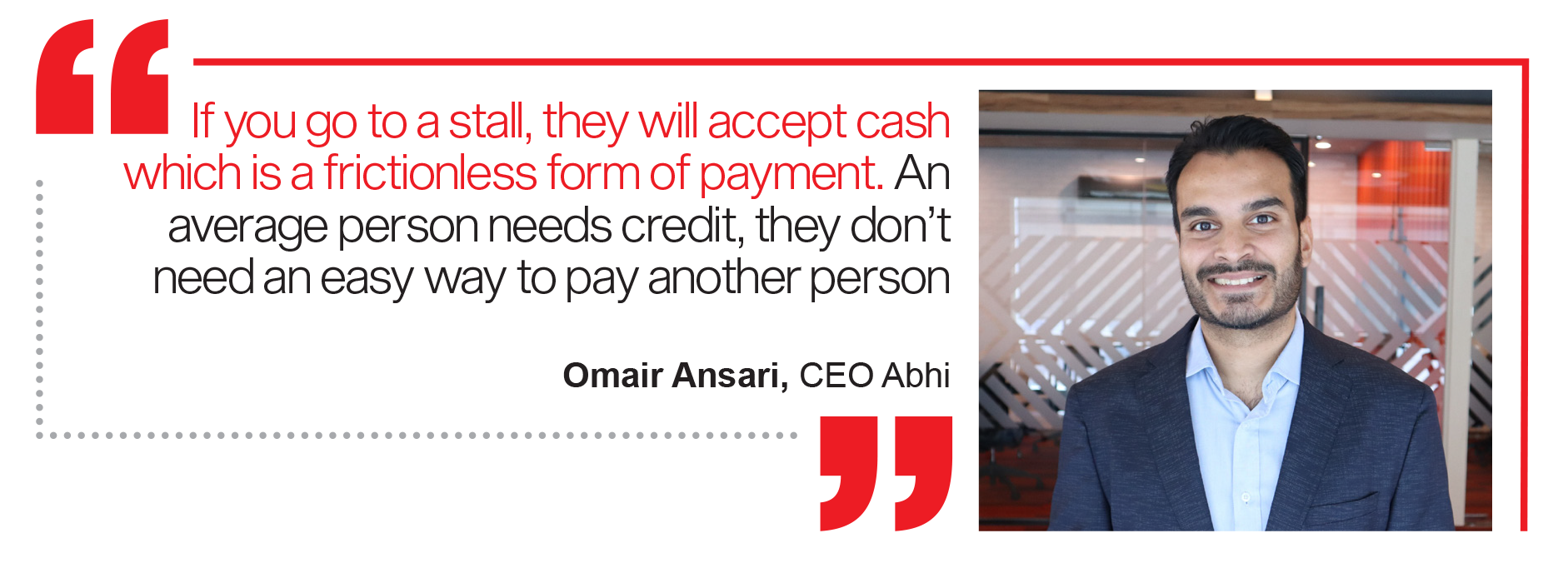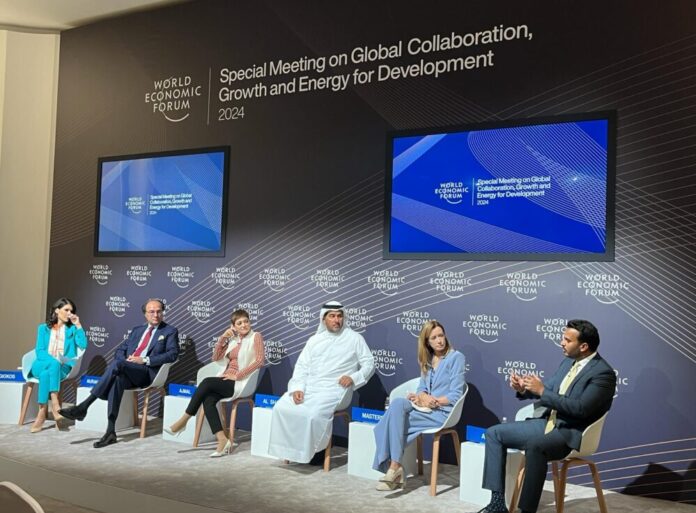The first question that was posed to Finance Minister Muhammad Aurangzeb at a recent session of the World Economic Forum was about cash. Around 40% of Pakistan’s economy still runs on cash, what does the government intend to do about it?
Mr Aurangzaib gave a measured but brief answer. He explained that digitising payments and moving away from cash were one of the top priorities of the current government in Pakistan. As a former banker, he is well placed to understand just how important financial inclusion is not just for the banking sector but the health of the economy.
The more detailed answer, however, was perhaps given by the other Pakistani on the panel. Omair Ansari, the CEO of Karachi based fintech company Abhi, said that the democratisation of payments only happens when there is zero fee which then causes mass adoption. According to Ansari, the problem bigger than payments was that of providing access to credit to individuals and merchants.
Abhi has been a part of Pakistan’s payments industry since June 2021 when the startup raised $2 million in seed funding with an aim to salary advances through a web-page or an application. The company was incubated at the prestigious YCombinator in 2021. In April 2022, the fintech company raised a $17 million Series-A round which valued the company at a $90 million valuation. In May last year, Abhi raised the first-ever Rs2 billion sukuk bond by a fintech company. Just today the company has also announced it has joined hands with the TPL Corporation to try and acquire a majority stake in FINCA Microfinance Bank.
Credit is the problem, not payments
The presence of Abhi’s CEO on the panel provided a non-governmental perspective on fixing the financial inclusion problem. What made it interesting was Mr Ansari’s claim that the problem was not payments, but rather access to credit.
“If you go to a stall, they will accept cash which is a frictionless form of payment than digital. However, what we focus on is credit-led. An average person needs credit, they don’t need an easy way to pay another person,” Ansari said in response to a question.
 Giving the example of Abhi, he explained the company was a credit-led fintech focusing on providing credit as a means to create mass adoption as opposed to forcing payments on individuals. Ansari was of the opinion that payments were not what people in Pakistan were complaining about. Their complaint was rather that they don’t have cash to improve their lifestyle.
Giving the example of Abhi, he explained the company was a credit-led fintech focusing on providing credit as a means to create mass adoption as opposed to forcing payments on individuals. Ansari was of the opinion that payments were not what people in Pakistan were complaining about. Their complaint was rather that they don’t have cash to improve their lifestyle.
“Our focus across geographies and Pakistan specifically where we have been able to push adoption is being a credit first solution in that geography,” Ansari added. Abhi’s business model is that they provide salary advances to salaried workers at the end of the month to tide them over and then cut those advances from their next month’s salary. It is essentially a system that allows people to borrow from their own future earnings.
Ansari outlined that it was a fallacy that Pakistan had a big unbanked population. It was a fallacy because telcos had reduced such population through their digital wallets.
“Telco wallets are an alternate form of banking that we partner with to digitise the lending aspect of our business,” he said. “The second aspect is the alternate scoring mechanism. Traditional banks will look at a customer in a very different way than how we look at the telco data that an individual or a business has. How worthy are you of credit?”
Responding to a question about whether Abhi had a better appetite for risk than traditional banks, Ansari, responding in affirmative, explained that banks would rather give a multi billion dollar loan to a stable company considered risk free instead of giving out 100,000 loans of a smaller ticket size.
Now, banks have started partnering with Abhi as a distribution model which lets Abhi give out smaller loans to SMEs and individuals for banks. “That’s essentially our [Abhi’s] target market because they can not get access to financing. They are just underbanked and unbanked.”
On a question about how to increase digital adoption to people at a mass scale, Ansari said that omni-channel was the answer.
“There is a fallacy again that is around that when people think about fintechs in emerging markets, that suddenly everything is digital and you are going to leapfrog. That is not happening.
“NuBank is acquiring a telco. Why? Because of physical presence. The point is if you don’t go omni-channel in these markets and there is no physical presence, your ability to scale fintech is going to be limited. A branch network is actually required. It’s a different branch than what existed 5 years ago.”
The FINCA acquisition
Ansari said that his fintech company was also in the process of acquiring a microfinance bank in Pakistan to have a branch presence. He was of the view that a physical presence was especially necessary to extend credit to the agricultural segment of Pakistan.
The very next day, an announcement was made by TPL Corp to the PSX that it was in the process of acquiring a majority stake in FINCA in partnership with Abhi. FINCA Pakistan is part of FINCA Impact Finance (FIF), an international network of 16 microfinance banks. The company has in the past also worked with Finja and launched a mobile wallet by the name of SimSim in 2016. Abhi’s goals with the proposed acquisition are also very clear.
“It is impossible for you to do it all through digital means because they [farmers] also trust going to a branch. They don’t trust a digital interface. It is going to evolve and it is going to take time and you need to work with time instead of dreaming about the future and waiting for that to happen.”


























Guys you need to improve the spam filter on your comment section.
In one of your articles about Finja, I noticed that some readers have requested you to dive deeper into their matters. It appears you are promoting them instead.